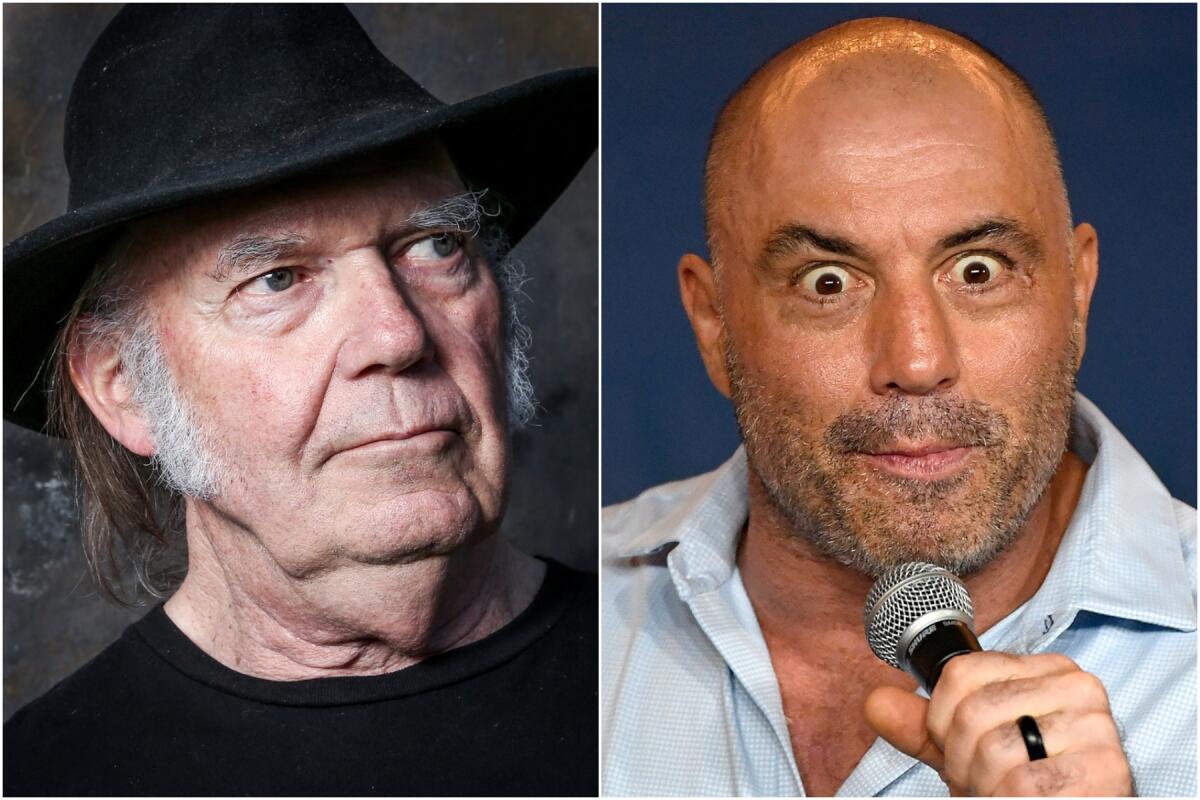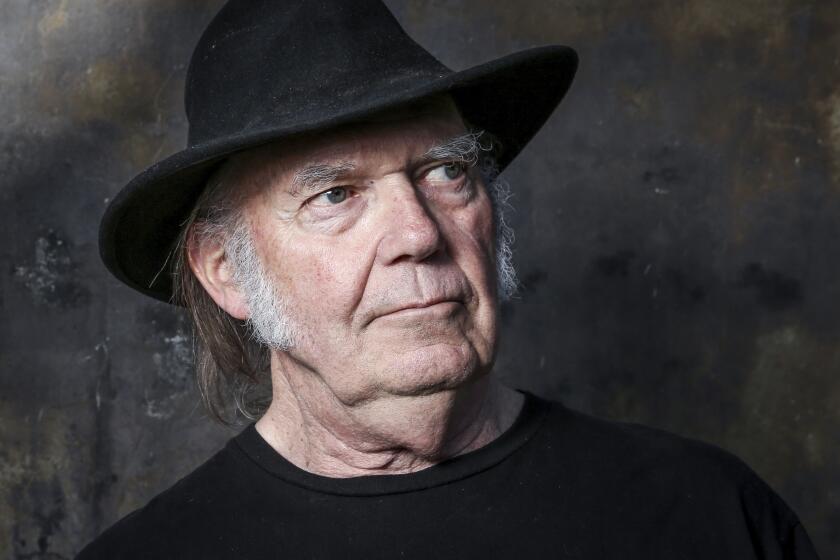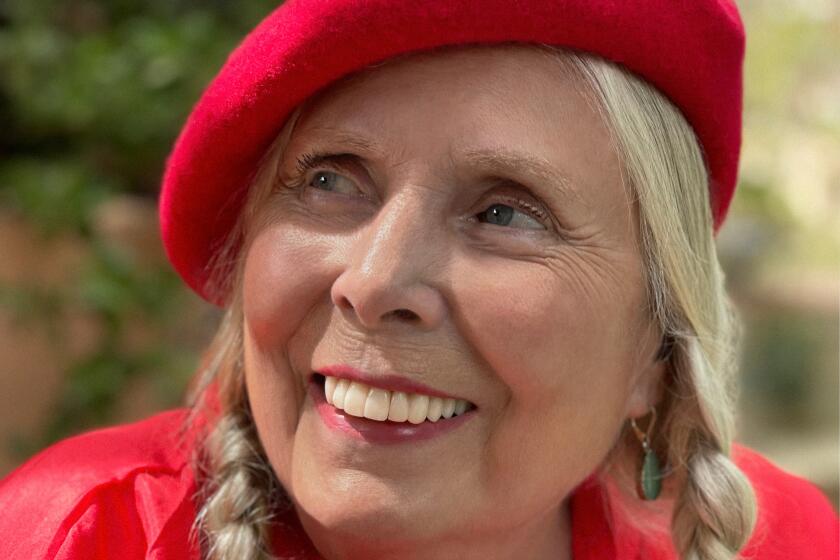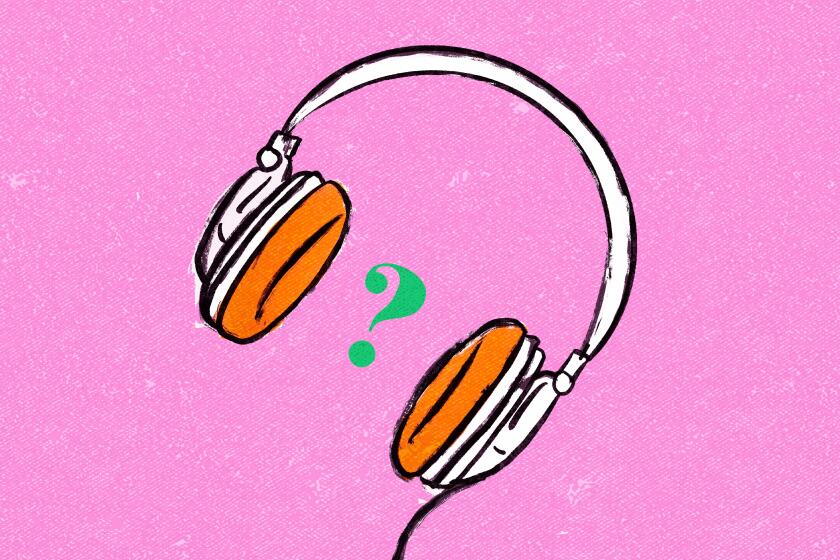Spotify finally explains its COVID-19 misinfo policy, but hints Joe Rogan is safe

- Share via
Following weeks of criticism over Spotify’s controversial podcast host Joe Rogan and the company’s opaque approach to moderating potentially harmful inaccurate content about COVID-19 on its platform, the CEO of the popular streaming service Daniel Ek acknowledged Sunday that “we haven’t been transparent around the policies that guide our content more broadly.”
“Based on the feedback over the last several weeks, it’s become clear to me that we have an obligation to do more to provide balance and access to widely accepted information from the medical and scientific communities guiding us through this unprecedented time,” Ek said in a blog post, which announced the publication of the platform’s internal content moderation policies as well as a new labeling system for COVID-19-related content.
However, Ek did not specifically mention Rogan or his show “The Joe Rogan Experience” — the most popular podcast on Spotify — and Ek’s post hinted that the company was not going to bow to calls from artists such as Neil Young to remove Rogan’s show from the platform entirely over the host’s oft-criticized discussions of COVID-19 scientific issues.
Spotify isn’t new to controversy. Here’s a rundown of the music streamer’s history of feuds with artists and songwriters over royalties, privacy and more.
“We know we have a critical role to play in supporting creator expression while balancing it with the safety of our users,” Ek said. “In that role, it is important to me that we don’t take on the position of being content censor while also making sure that there are rules in place and consequences for those who violate them.”
Since the pandemic began in 2020, Spotify has lagged behind many of its corporate peers in articulating a stance on the “misinformation” policies that many digital platforms adopted to limit the spread of potentially medically harmful information online.
Some figures, particularly vaccine skeptics, have been critical that such policies stifled open debate online, while many medical experts have argued that promoting vaccine hesitancy or untested COVID-19 treatments could have potentially deadly consequences.
Spotify struck the somewhat awkward balance of creating an internal content moderation policy that it has applied to some users, but which, until now, it had declined to publish online or to otherwise publicly explain.
Joni Mitchell, longtime friend of Neil Young, has asked to have her music removed from Spotify, in protest of podcaster Joe Rogan’s anti-vaccine misinformation.
The company’s reluctance to explain its position has been repeatedly tested by the controversies surrounding Rogan, who often interviews subjects skeptical of COVID-19 medical orthodoxy and who have been banned from other platforms for violating “misinformation” policies. The company signed an exclusive distribution deal with Rogan in 2020 said to be worth about $100 million, and Rogan has repeatedly said that the company has not tried to censor or limit what he says on his program.
The current wave of controversy began after Rogan interviewed a prominent vaccine skeptic, Robert Malone, in December, leading 200 medical professionals, academics and others to send a Jan. 10 open letter demanding the service “immediately establish a clear and public policy to moderate misinformation on its platform.”
The misinformation rules that Spotify disclosed Sunday set a relatively high bar for content removal. It’s specifically forbidden by Spotify to claim that COVID-19 is a hoax, that the vaccines were “designed to cause death,” or to encourage listeners to drink bleach as a treatment or to deliberately catch the virus.
If you’re Team Neil and looking for an alternative to market-leader Spotify, there’s a wide variety of streaming services to match your music needs.
It does not seem forbidden, however, to argue that people shouldn’t get vaccinated or that vaccines are ineffective, or a variety of other common arguments about which many medical experts have been critical.
“These policies were developed by our internal team in concert with a number of outside experts and are updated regularly to reflect the changing safety landscape,” Ek wrote in his post. “These are rules of the road to guide all of our creators — from those we work with exclusively to those whose work is shared across multiple platforms.”
Ek said the company’s new content advisory label would apply to any podcast with a discussion about COVID-19, and would refer users to the company’s “COVID-19 Hub, a resource that provides easy access to data-driven facts, up-to-date information as shared by scientists, physicians, academics and public health authorities around the world, as well as links to trusted sources.”
More to Read
The biggest entertainment stories
Get our big stories about Hollywood, film, television, music, arts, culture and more right in your inbox as soon as they publish.
You may occasionally receive promotional content from the Los Angeles Times.














